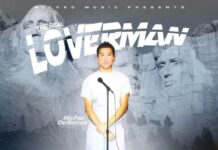(Isstories Editorial):- Birmingham, Alabama Jun 26, 2025 (Issuewire.com) – After nearly 30 years of experience in emergency departments across Alabama, Dr. Chris Endfinger is raising awareness around a quiet crisis in healthcare: the erosion of mentorship and emotional resilience in emergency medicine.
At a time when hospitals are pushed to the limits–short on staff, long on hours, and driven by metrics–Dr. Endfinger is urging fellow physicians and healthcare leaders to invest in something simple but powerful: being there for each other.
“Technology can’t teach judgment. That comes from experience–and experience has to be shared,” says Dr. Endfinger. “Sometimes the most important part of the shift isn’t the procedure. It’s the conversation you have afterward in the break room.”
More on Isstories:
- Punjabi Singer Harvy Sandhu, born in Punjab’s Hoshiarpur district and now based in Toronto
- From Protector of the Skies to Preserver of Culture: IAF Veteran Anand Kumar Ashodhiya’s Literary Odyssey
- The Science Behind Mettle: Why Athletes Are Switching from International to Indian Brands
- Subie Queen: The Rise of a Ugandan Digital Powerhouse
- Youfa Group: Building the Global Infrastructure Backbone as a Global Leading Carbon Steel Pipe Manufacturer
According to a 2023 study by the American Medical Association, nearly 47% of emergency physicians report symptoms of burnout. For younger doctors entering the field, mentorship and emotional support are proven to reduce stress and improve patient care outcomes.
Dr. Endfinger, who mentors residents at St. Vincent’s Hospital in Birmingham, says new physicians often feel overwhelmed–not just by the clinical load, but by the emotional weight of the work.
“I remember my first ER shift like it was yesterday,” he recalls. “I was terrified of missing something. But what got me through wasn’t just training–it was an older doc who pulled me aside and showed me how to lead with calm and compassion.”
Now, he pays it forward–offering guidance, post-shift debriefs, and a listening ear to the next generation.
A Deeper Human Need
Beyond mentorship, Dr. Endfinger emphasizes the need for presence–both with colleagues and patients.
“You won’t always be able to fix the medical problem,” he says. “But you can sit with someone in their pain. You can be the steady voice in the room. That’s what people remember.”
His perspective isn’t theoretical. He’s practiced it in emergency rooms, rural hospitals, and even clinics in Honduras with no electricity or running water.”
What You Can Do
Dr. Endfinger isn’t launching a foundation or campaign. Instead, he’s asking people–especially those in healthcare–to take small, personal steps:
- Doctors and nurses: Check in on each other after a tough shift. Ask how someone’s holding up–not just clinically, but emotionally.
- Leaders and administrators: Protect time for mentorship. Allow for debrief moments. Model the behaviors you want young doctors to carry forward.
- Medical students and residents: Find someone you trust and ask questions. Stay curious. Don’t be afraid to admit what you don’t know.
- Everyone else: When you meet a healthcare worker, show grace. They carry more than just your chart–they carry stories, stress, and the weight of human suffering.
“Legacy isn’t a plaque,” Endfinger says. “It’s being remembered as someone who cared–about patients, teammates, and doing the right thing even when it was hard.”
The Bottom Line
Emergency medicine isn’t just fast-paced or life-saving–it’s emotionally complex. And the solution, according to Dr. Endfinger, doesn’t require more technology. It requires more humanity.
“We’re not machines. We feel things deeply–we just don’t always show it,” he says. “If we want better medicine, we have to make space for mentorship, presence, and grace.”
Take five minutes today to check in with someone–colleague, friend, or family. Ask how they’re really doing. Listen. Sometimes presence is the most powerful thing you can give.
Dr. Chris Endfinger


















